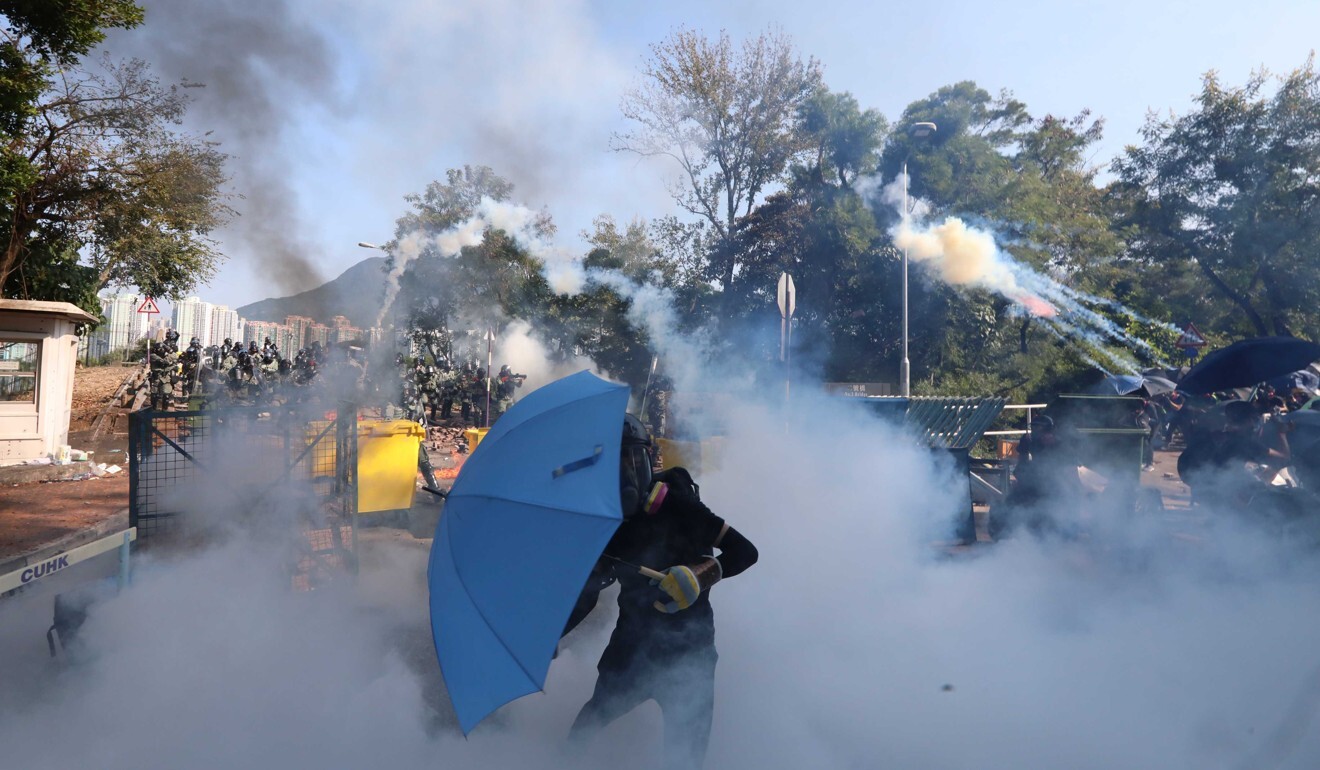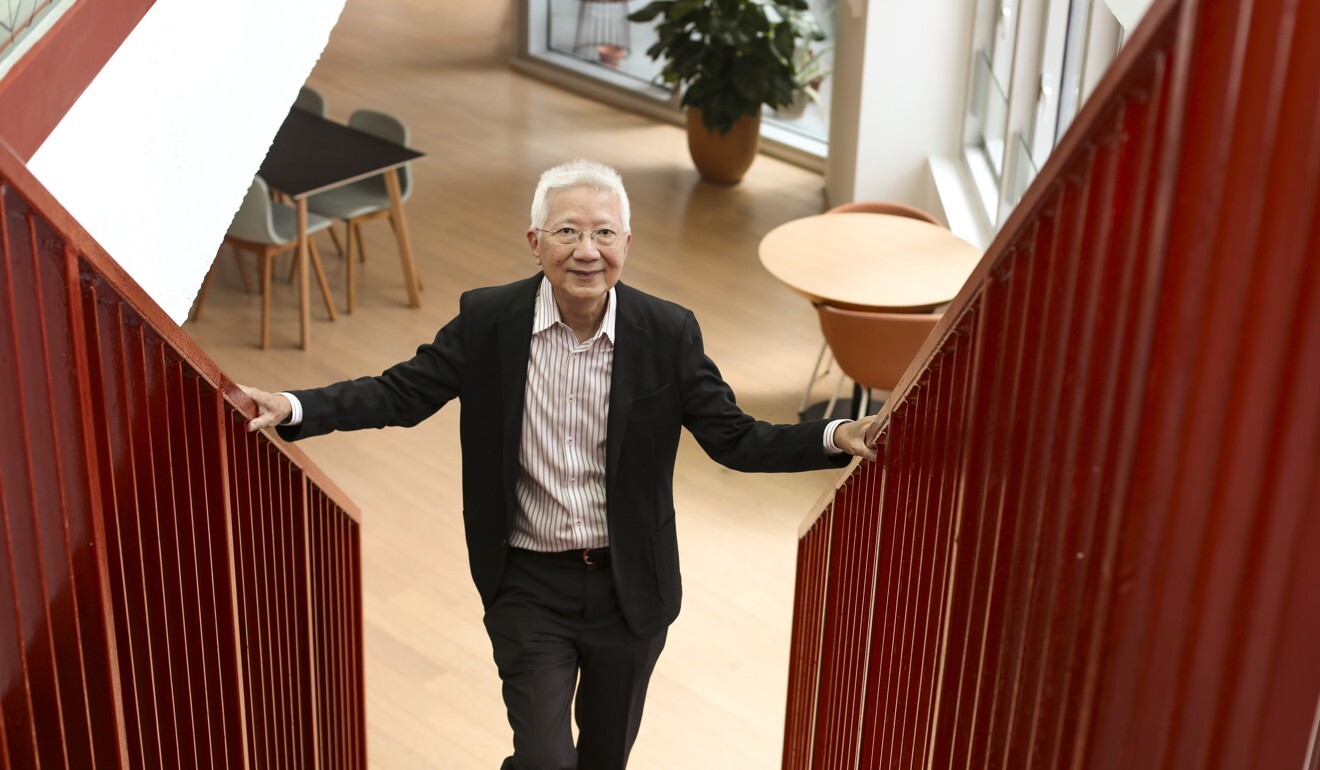About 180 have received help so far from Project Change, which was set up last year and describes itself as apolitical, law-abiding and willing to reach out to young people regardless of their political stance.
“For Project Change, we walk with you, whatever conditions there are,” said Pauline Sung Chan Po-lin, founding director of the project and a clinical fellow at the Asian Academy of Family Therapy.
“Our principle is we work with the individual, his family, his network – not according to my agenda, but his agenda.”

Pauline Sung, founding director of Project Change and a clinical fellow at the Asian Academy of Family Therapy. Photo: Facebook
The group was set up in June last year after about 6,400 people under 25 years old were arrested between June 2019 and the end of February 2020, according to official figures.
It aims to help the 5,000 young people among them facing trial or awaiting investigations to be completed. Those under 25 made up almost half of the 10,200 arrested.
Sung, a specialist in family and youth social work and an honorary economics associate professor at the University of Hong Kong, started the NGO with other academics who noticed that many of their university students were among those arrested.
She said they were not interested in examining what the young people had done that led to their arrest, but only wanted to provide support.

Riot police fire tear gas in and around the Chinese University campus in November 2019. Photo: Felix Wong
It conducts most of its services independently, but also refers individuals to lawyers or psychiatric specialists if necessary. A case manager is assigned to every young person and his guardians.
Over an initial period of about four months, the group offers counselling, screens the individual’s mental health and the charges against him, and decides what type of further support is needed.
More counselling and help is offered over the next eight months or so.
It provides psychological reports for those who agree to be considered for receiving a police caution or being bound over, which would not leave them with a criminal record.
It also provides psychosocial reports to the Department of Justice and the courts, often making sure that the young person can work with their legal counsel effectively.
For those who are convicted, the group provides advice to help them “prepare for and cope with” the penalties they face, ranging from imprisonment to community service.
The programme encourages young people to reflect on what they have done and aim to be more responsible citizens.
In a report earlier this year, the NGO said many of those arrested were well-behaved, but had been misguided and “swept up” in the social unrest, echoing remarks made by Patrick Nip Tak-kuen, Hong Kong’s civil service chief and former constitutional affairs minister.
So far, it has helped 60 young people and 120 family members. A third of its cases heard about the group from other participants, while a quarter were referred by lawyers.
The group’s 20 volunteers include specialists in clinical therapy, social work and law.
Among them is Sung’s husband, Chinese University adjunct economics professor Sung Yun-wing, an associate director of the project.
He said young people who were arrested needed not only legal help but also counselling and psychological support.
“The arrest itself may leave the young person extremely depressed and withdrawn,” he said.
He added that existing programmes offered by the government’s Department of Social Welfare failed to address the needs of arrested young people, as they lacked trust in the authorities.
“They tend to be suspicious of any office or agency associated with the government or the police,” he said.

Chinese University adjunct economics professor Sung Yun-wing. Photo: Xiaomei Chen
Project Change leaders stressed that as an apolitical NGO offering counselling services free of charge, it was unlike the opposition group 612 Humanitarian Relief Fund, which was set up to provide financial support to anti-government protesters.
Earlier this month, the fund stopped accepting donations “until further notice”, after police began investigating its activities.
Project Change associate director Raymond Mak Ka-chun said that remaining apolitical was a priority for the group.
“The focus is the students and the young people themselves,” he said. “Being apolitical is the best way to build trust on both sides.”
Among the 60 arrested young people helped by the group so far is year four university student Chen*.
In a video posted on the group’s Facebook page, he said that after his arrest for taking part in the anti-government protests, he feared he had “no future”.
“The whole feeling was like drowning. I didn’t know what to do, I couldn’t breathe,” he said. “I found that … [Project Change] will understand, and understand your needs, and do their best to help you.”
Pauline Sung hoped the project could expand to provide more support to the city’s young people, and that society would be more tolerant of the next generation.
“We have to give them support and give them a chance,” she said. “I have made a lot of mistakes too. Those arrested have to forgive themselves. And other people also have to forgive them.”
* Name changed.